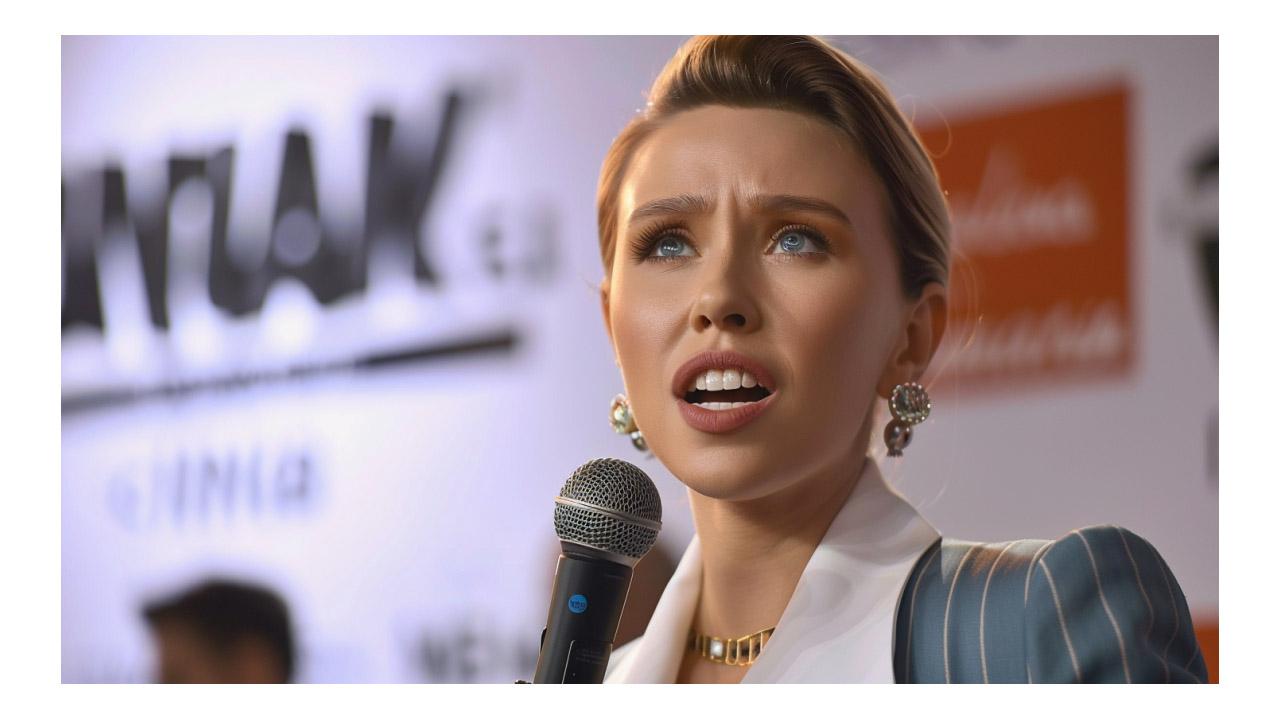Scarlett Johansson’s Voice Battle with OpenAI: A Call for Transparency and Protection
Last September, Scarlett Johansson received an intriguing offer from Sam Altman, the CEO of OpenAI. He wanted her to lend her voice to the new ChatGPT 4.0 system. Altman believed that Johansson’s voice could bridge the gap between tech companies and creatives, making consumers feel more at ease with the significant changes AI brings. He […]
By Eric
Last September, Scarlett Johansson received an intriguing offer from Sam Altman, the CEO of OpenAI. He wanted her to lend her voice to the new ChatGPT 4.0 system. Altman believed that Johansson’s voice could bridge the gap between tech companies and creatives, making consumers feel more at ease with the significant changes AI brings. He specifically mentioned that her voice would be comforting to people.
After careful consideration and for personal reasons, Johansson declined the offer. Nine months later, her friends, family, and the general public began to notice that the latest system, named “Sky,” sounded remarkably like her. When Johansson heard the demo, she was shocked and angered. The resemblance was so striking that even her closest friends and various news outlets couldn’t tell the difference. Altman seemed to acknowledge the similarity by tweeting a single word: “her”—a reference to the film where Johansson voiced Samantha, an AI system that forms an intimate relationship with a human.
Two days before the ChatGPT 4.0 demo was released, Altman contacted Johansson’s agent, asking her to reconsider. However, the system was already live before they could connect. As a result of these actions, Johansson was forced to hire legal counsel. Her lawyers sent two letters to Altman and OpenAI, outlining their concerns and requesting a detailed explanation of how the “Sky” voice was created. Consequently, OpenAI reluctantly agreed to take down the “Sky” voice.
In an era where we are increasingly grappling with the challenges of deepfakes and the protection of personal likenesses, identities, and creative work, Johansson believes these issues demand absolute clarity. She emphasizes the need for transparency and calls for appropriate legislation to ensure individual rights are protected.
Johansson’s case underscores a broader issue facing the entertainment industry and the public at large. As AI technology continues to advance, the line between human and machine becomes increasingly blurred. This incident highlights the urgent need for regulations that protect individuals from unauthorized use of their voices and likenesses.
Johansson’s battle with OpenAI serves as a crucial reminder of the potential ethical pitfalls in the rapidly evolving world of artificial intelligence. The outcome of her case could set a significant precedent for how AI technologies are regulated and how personal rights are upheld in the digital age.
